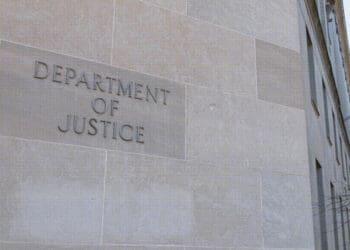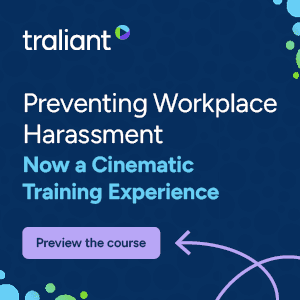A new program aimed at incentivizing whistleblower reports of antitrust law violations is likely to increase reports and signals further reliance by the federal government on non-governmental actors, write Gregory Keating and Holly McDaniel of Littler Mendelson.
The DOJ’s Antitrust Division has formally launched a new whistleblower rewards program, offering financial incentives to individuals who report suspected antitrust violations that lead to the government recovering $1 million or more in criminal fines or other penalties. The program contains some restrictions on who can collect these financial incentives, but the existence of the incentives alone is likely to increase reports of antitrust violations.
The program was created to help the DOJ identify and prosecute antitrust violations, which often occur in secret with only a few corporate insiders being privy to the information. The antitrust whistleblowers program’s launch comes shortly after the creation and recent expansion of the Criminal Division’s corporate whistleblower awards pilot program, potentially signaling a growing reliance on non-governmental actors to effectuate the DOJ’s purpose.
For companies, this means ensuring that robust reporting mechanisms exist for employees to raise any concerns internally and training front-line managers and compliance professionals to ensure concerns are properly escalated.
Who is entitled to the program’s financial incentives?
The antitrust whistleblower program will collaborate with the US Postal Service and the US Postal Service Office of Inspector General to implement the program and pay the rewards. This collaboration requires that any antitrust violation uncovered by the whistleblower have some connection to the Postal Service, its revenues or its property for the whistleblower to receive any money. This connection is unlikely to be a high burden to recovery, however, given that the Postal Service provides services for or uses the services of most companies in the US.
In addition to the Postal Service nexus, the program requires that the whistleblower provide the Antitrust Division with original, non-public information, meaning the information cannot be something that was already known to the division, nor can it be based on publicly available data. The whistleblower must have insider knowledge and be the first to alert the division. The information must also lead to the Antitrust Division recovering at least $1 million in criminal fines or other penalties.
Finally, the program places restrictions on who can actually recover for reporting original, non-public information that leads to over $1 million in recovery. Counsel for companies and those working in compliance are generally not eligible to receive any portion of the government’s recovery.
However, these individuals may be eligible for recovery if they report the suspected violation internally, as required by the nature of their position, and nothing is done to respond to their concerns or curb the alleged illegal activity within 120 days. Further, anyone who “coerced another party to participate in the illegal activity or were clearly the leader or originator of that activity” is ineligible, although the program’s tip submissions form does suggest that these reporters could take advantage of the division’s leniency program.
What is considered a violation?
The program’s memorandum of understanding expressly lists the following antitrust crimes as eligible criminal violations:
- Criminal violations of sections 1, 2 and 3 of the Sherman Act.
- Federal criminal violations committed to effectuate, facilitate or conceal violations of the Sherman Act.
- Federal criminal violations targeting or affecting federal, state or local public procurement.
- Federal criminal violations targeting or affecting the conduct of federal competition investigations or proceedings.
Violations of the Sherman Act include price fixing, market allocation, bid rigging and certain monopolization cases. The text of the identified Sherman Act sections is broad, however, and could be interpreted to cover a wide range of activities that restrain trade.
This broad language also increases the likelihood that potential whistleblowers will submit tips of alleged antitrust violations that are not criminal activity or even unlawful in the hopes of getting a payout or simply being mistaken as to the confines of the law.
For example, if a small company seeks to acquire a competitor, they are likely not in violation of any antitrust laws. However, a disgruntled employee affected by layoffs may still seek to punish the company by reporting them to the Antitrust Division. This disclosure could lead to additional red tape in finalizing the acquisition and raise fears of future retaliation claims from the purported whistleblowers.
What should companies do to prepare?
Companies should have multiple reporting channels and robust investigation protocols in place to proactively resolve any potential antitrust concerns, even if many of the reports may prove to be unsubstantiated. The 120-day safe harbor period can be vital for avoiding millions in criminal penalties and swift internal investigations can help companies meet this goal.
Companies should also have written policies encouraging reporting and emphasizing the goals of corporate compliance. In addition, companies should consider investing in training front-line managers on management of employee concerns on potential antitrust violations, although given the complexity of the law, it may be beneficial for some front-line managers to have a clear line of communication to someone well-versed in the topic rather than attempting to assuage an employee’s concerns themselves.
Companies must also ensure that any employee who does raise concerns about potential violations of antitrust law is protected from retaliation, whether the employee raises their concerns internally or directly with the DOJ. The Criminal Antitrust Anti-Retaliation Act of 2019 prohibits retaliation against employees who report potential antitrust violations to the federal government, not just through the new antitrust whistleblower program, or who participate in proceeding for enforcing antitrust laws. Therefore, any employee who raises antitrust concerns with their manager, the company’s other internal reporting structures or the DOJ should be counseled on the company’s anti-retaliation policy and extra caution should be given to any subsequent adverse employment action against the employee.
The DOJ’s continued shift to incentivizing whistleblowers through large financial rewards may lead to increased bogus reports of antitrust violations, particularly given the complexities of the law and the low likelihood that employees would have direct knowledge of a violation without being involved themselves. While companies run little risk of being falsely convicted of antitrust crimes, responding to internal reports is often time-consuming and disruptive of operations. Employers are urged to invest in compliance as noted above to foster more efficient investigations and minimize operational disruption.




 Gregory Keating
Gregory Keating Holly McDaniel
Holly McDaniel







